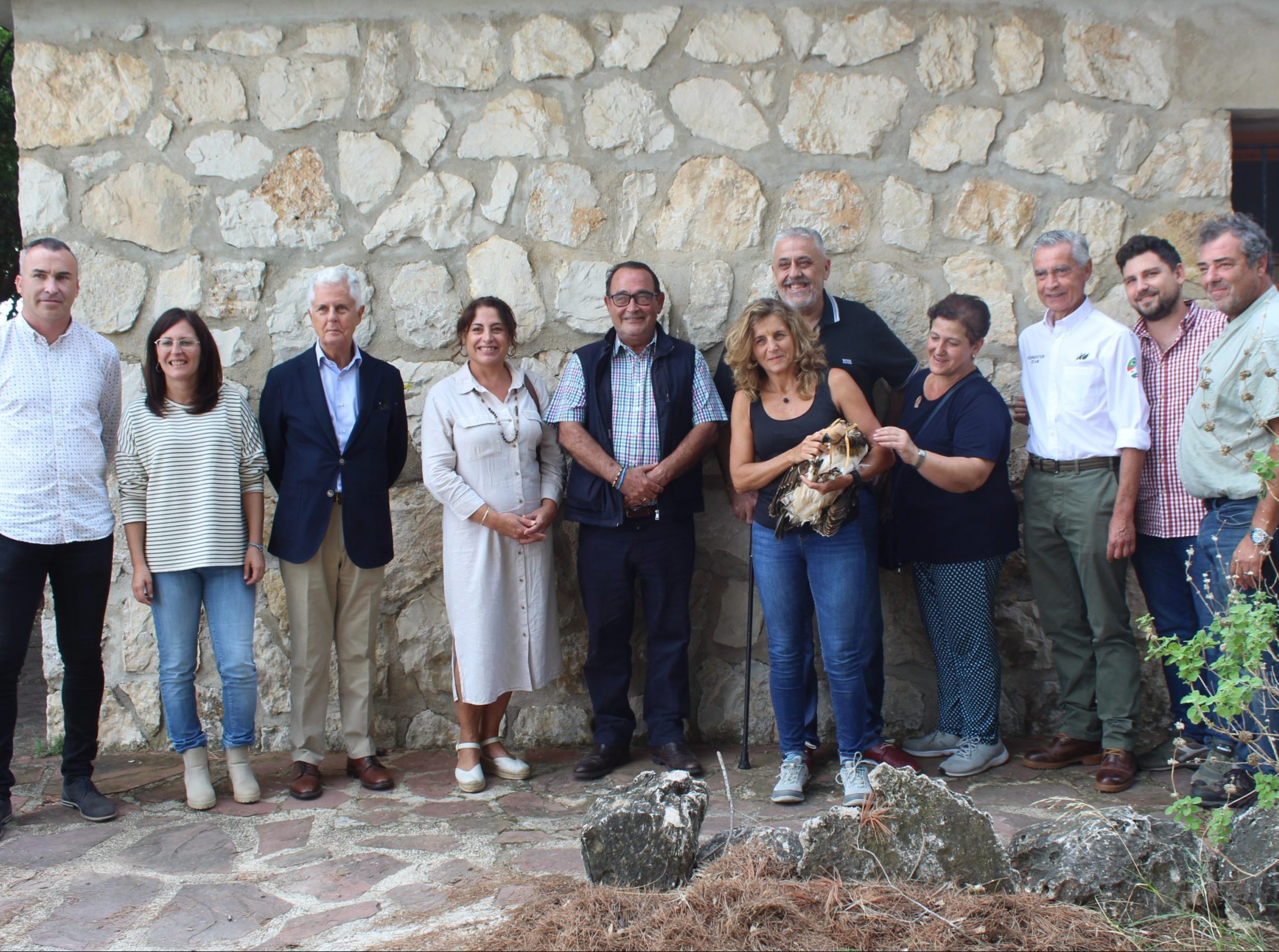Fundación Iberdrola España visits the facilities of the osprey reintroduction project in the Comunitat Valenciana
- A year ago, a collaboration agreement was signed for an osprey reintroduction project in the Comunitat
- The visit to the facilities of the Muntanyeta Verda was made on the occasion of the marking of Brisa, the osprey specimen from the Balearic Islands that is recovering in the hacking of the project
Brisa is a young female osprey that has arrived at the hacking of the Muntanyeta Verda (Marjal de Pego-Oliva Natural Park) from the island of Menorca. Born in the season 2022, she was found and picked up from the sea by the environmental agents on her first flights from the nest. She was transferred to COFIB (Consorci de Recuperació de Fauna de les Illes Balears) where she improved and regained weight.
Thanks to the collaboration agreement signed a year ago between the Conselleria de Medi Ambient i Territori del Govern de les Illes Balears, the Servicio de Vida de la Generalitat Valenciana, the Migres Foundation, and Fundación Iberdrola, Brisa was transferred to the hacking facility where she is finishing her recovery.
To know firsthand the situation, a visit has been organized with the presence of Juan Jiménez, head of the Wildlife Service of the Generalitat Valenciana; David Izquierdo, coordinator of large birds of prey projects in the Comunitat Valenciana; Enrique Moll, mayor of Pego; Yolanda Balaguer, mayor of Oliva; Fernando García, president of the Iberdrola Foundation Spain and Miguel Ferrer, president of the Migres Foundation. During the event, Brisa was tagged with GPS-GSM to be able to follow her movements once she is released.
This project, which began in the Marjal de Pego, has an annual budget of 50,000 euros from Fundación Iberdrola and is part of one of its main areas of activity, such as the protection of birdlife and habitat conservation.
The purpose of this collaboration is to obtain young fisherwomen from different donor countries for their transfer to the Valencian Community, where they are released using hacking techniques, which are common in this type of reintroduction project. The goal is the recovery of a self-sufficient breeding population in the Comunitat after more than 50 years of its disappearance.
The estimated number needed for this is 100 chicks, which are intended to be released over five years, with the support of donor countries such as Scotland, Sweden, and Norway, among others. Initially, the plan was to release a minimum of 12 young chicks in 2022, but the sudden appearance of a particularly virulent outbreak of avian influenza prevented the movement of birds within Europe, so the number of chicks initially planned is expected to be transferred next year. In this context, the appearance of Brisa has been particularly welcome.
Iberdrola committed to environmental protection
Iberdrola, through its Foundation in Spain, is firmly committed to environmental protection and the fight against climate change. Thus, the commitment to biodiversity extends to important actions that are governed by the lines of action set out in the Master Plan, such as supporting programs for the conservation of endangered species and the restoration of protected habitats.
Fundación Iberdrola España works with institutions and companies to improve the ecological environment and protect biodiversity. Among other initiatives, it supports the Rei Jaume I Prize for Environmental Protection in the region, which is awarded to people who have excelled in research into improving the ecological environment.
It also collaborates with the Fundación Patrimonio Natural de Castilla y León in a habitat improvement project and with the Consejería de Agricultura, Desarrollo Rural, Medio Ambiente y Energía de la Junta de Extremadura in a project to monitor significant species in the region, such as the black stork and the Egyptian vulture, two endangered species whose migratory behavior is not well known.


